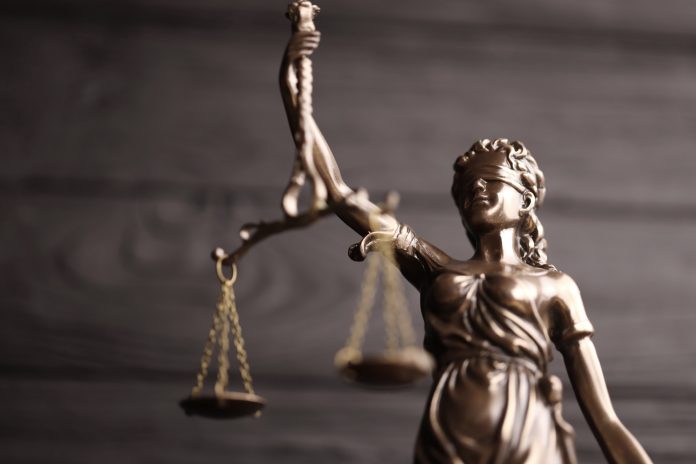In the dynamic world of complex music, where creativity thrives, and artists strive to make their mark, a parallel universe exists that is equally significant but often overlooked — the realm of legalities. As musicians, composers, and producers navigate the landscape of complex music, understanding the legal aspects surrounding copyright, licensing, and contracts is paramount to safeguarding their intellectual property and ensuring a sustainable career. This article delves into the essential legal foundations that underpin the industry, shedding light on key concepts and practices that every practitioner should be well-versed in.
Copyright in Hard Music
Copyright is at the core of protecting creative works in the music industry. Copyright laws serve as the armor that shields original compositions, recordings, and performances from unauthorized use or reproduction. Understanding how copyright applies to music involves grasping the rights conferred, the registration process, and the enforcement mechanisms available to artists. Moreover, delving into the nuances of fair use and the public domain can clarify how to navigate potential legal minefields while creating hard-hitting music that resonates with audiences.
Navigating the multifaceted world of complex music requires a harmonious blend of artistic prowess and legal acumen. By equipping oneself with a solid understanding of copyright, licensing, and contracts, artists can fortify their creative endeavors with a robust legal foundation, ensuring that their musical expressions are safeguarded and their professional relationships are built on firm legal ground.
As the industry continues to grow and adapt to changing trends and technologies, embracing the legal side of complex music is not just a choice but a strategic imperative for artists looking to thrive and leave an indelible mark on the musical landscape. Collaborate with legal professionals, stay informed about industry regulations, and let your passion for complex music soar while knowing that you are protected by the laws that govern creativity and innovation.
Licensing and Permissions
In a landscape where collaboration and innovation reign supreme, music licensing is pivotal in facilitating the legal use of musical works. Artists must familiarize themselves with the myriad types of music licenses, including mechanical, synchronization, and performance licenses, to navigate the complexities of sharing their art across different platforms and mediums.
Acquiring licenses for covers, samples, and collaborations demands a keen eye for elements and adherence to legal protocols to ensure proper compensation and attribution. By exploring successful licensing deals through real-world case studies, artists can glean valuable insights into forging mutually beneficial partnerships in the industry.
Understanding the legal intricacies of music licensing fosters compliance with regulations. It opens new creative opportunities and revenue streams for artists seeking to expand their impact in the industry. Embracing transparency and ethical practices in licensing negotiations can lay the groundwork for long-lasting and fruitful collaborations that benefit all parties involved.
By prioritizing a thorough understanding of licensing procedures and obligations, artists can confidently navigate the intricate legalities, allowing their music to resonate authentically with audiences worldwide.
Contracts in the Music Industry
Contracts are the bedrock of professional relationships in the music industry, dictating the terms and expectations between the parties involved. Familiarizing oneself with standard contracts in complicated music, such as recording, publishing, and management agreements, is crucial in safeguarding one’s interests and rights. Identifying key clauses, negotiating effectively, and seeking legal representation when necessary can empower artists to make informed decisions and protect their creative endeavors in an ever-evolving landscape.
By honing their negotiation skills and understanding the nuances of contracts, artists can cultivate enduring partnerships and achieve long-term success in the competitive landscape of complex music.
Understanding the legal intricacies of contracts empowers artists to uphold their artistic vision while safeguarding their rights and ensuring fair compensation for their contributions to the industry. Collaborating with legal professionals to review and negotiate contracts can strengthen an artist’s position and clarify the terms and obligations outlined in these crucial documents. By prioritizing transparency and diligence in contract management, artists can confidently navigate the music industry, knowing their creative output is protected and valued within established legal agreements.
Legal Resources and Tools
For complex music professionals seeking to navigate the legal intricacies of the industry, a plethora of resources and tools are available to guide them on their journey. From educational materials on copyright, licensing, and contracts to platforms for managing and protecting intellectual property rights, artists can leverage these resources to enhance their legal acumen and safeguard their creative output effectively. Staying abreast of legal developments through regular updates and industry insights can further empower artists to navigate the evolving legal landscape with confidence and foresight.
For personalized legal guidance and support, connect with Lawrina for an expert lawyer near you to navigate the legal nuances of the complex music industry effectively. Inspired by Lawrina’s commitment to legal education and accessibility, artists can confidently engage with legal professionals to ensure their artistic endeavors remain protected and prosperous in the dynamic world of complex music.
Conclusion
As we conclude our exploration into the legal side of complex music, it becomes evident that an understanding of copyright, licensing, and contracts is essential for artists looking to thrive in a competitive industry. By prioritizing legal education, seeking expert advice when needed, and embracing the intersection of creativity and legality, musicians, composers, and producers can forge ahead with confidence, knowing that a solid legal foundation safeguards their hard work and talent.









